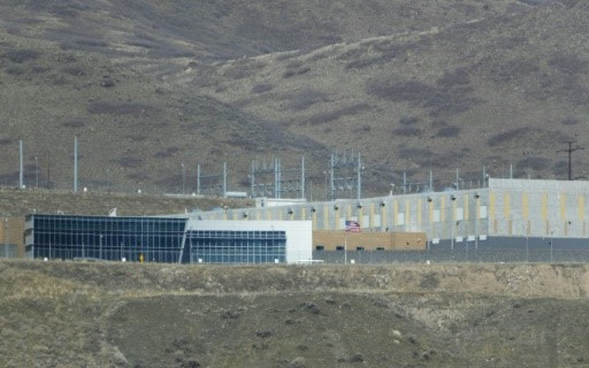|
by Paul HANDLEY © GETTY IMAGES NORTH AMERICA/AFP / by Paul HANDLEY | The US National Security Agency, which operates this ultra-secure data collection center in Utah, is one of the key US spying operations turning to artificial intelligence to help make sense of massive amounts of digital data they collect every day. WASHINGTON (AFP) – Swamped by too much raw intel data to sift through, US spy agencies are pinning their hopes on artificial intelligence to crunch billions of digital bits and understand events around the world.Dawn Meyerriecks, the Central Intelligence Agency’s deputy director for technology development, said this week the CIA currently has 137 different AI projects, many of them with developers in Silicon Valley. These range from trying to predict significant future events, by finding correlations in data shifts and other evidence, to having computers tag objects or individuals in video that can draw the attention of intelligence analysts. Officials of other key spy agencies at the Intelligence and National Security Summit in Washington this week, including military intelligence, also said they were seeking AI-based solutions for turning terabytes of digital data coming in daily into trustworthy intelligence that can be used for policy and battlefield action. – Social media focus – AI has widespread functions, from battlefield weapons to the potential to help quickly rebuild computer systems and programs brought down by hacking attacks, as one official described. But a major focus is finding useful patterns in valuable sources like social media. Combing social media for intelligence in itself is not new, said Joseph Gartin, head of the CIA’s Kent School, which teaches intelligence analysis. “What is new is the volume and velocity of collecting social media data,” he said. In that example, artificial intelligence-based computing can pick out key words and names but also find patterns in data and correlations to other events — and continually improve on that pattern finding. AI can “expand the aperture” of an intelligence operation looking for small bits of information that can prove valuable, according to Chris Hurst, the chief operating officer of Stabilitas, which contracts with the US intelligence community on intel analysis. “Human behavior is data and AI is a data model,” he said at the Intelligence Summit. “Where there are patterns we think AI can do a better job.” – Eight million analysts – The volume of data that can be collected increases exponentially with advances in satellite and signals intelligence collection technology. “If we were to attempt to manually exploit the commercial satellite imagery we expect to have over the next 20 years, we would need eight million imagery analysts,” Robert Cardillo, director of the National Geospatial-Intelligence Agency, said in a speech in June. Cardillo said his goal is to automate 75 percent of analysts’ tasks, with a hefty reliance on AI operations that can build on what they learn automatically. Washington’s spies are not the only ones turning to AI for future advantage: Russian President Vladimir Putin declared last week that artificial intelligence is a key for power in the future. “Whoever becomes the leader in this sphere will become the ruler of the world,” he said, according to Russian news agencies. The challenge, US officials said, is gaining trust from the “consumers” of their intelligence product — like policy makers, the White House and top generals — to trust reports that have a significant AI component. “We produce a presidential daily brief. We have to have really, really good evidence for why we reach the conclusions that we do,” said Meyerriecks. “You can’t go to leadership and make a recommendation based on a process that no one understands.” taken from:
0 Comments
Leave a Reply. |
Science&TechnologyArchives
March 2020
|

 RSS Feed
RSS Feed
